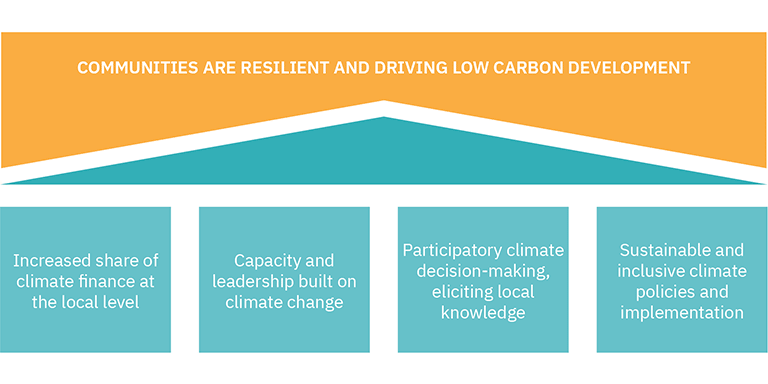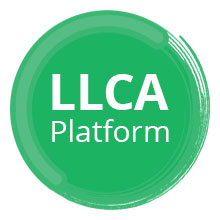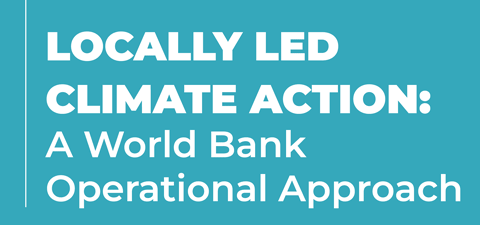What is Locally Led Climate Action?
Locally Led Climate Action (LLCA) is a transformative approach that strengthens climate resilience while driving economic growth and resilient development. LLCA channels financing to the local level—where climate impacts are most deeply felt— and empowers communities and local actors with the skills, resources, and expertise needed to develop sustainable solutions. Through its complementary interventions in governance and decision-making processes, LLCA increases accountability and supports inclusive economic development.
Investing in LLCA not only enhances climate adaptation and mitigation efforts but also generates economic opportunities, from job creation in transition-aligned industries to fostering entrepreneurship and sustainable livelihoods. This approach is more than an investment in communities—it is a pathway toward a more resilient, equitable, and prosperous future at the local, national, and global levels.
LLCA builds from the work of organizations like the Global Commission on Adaptation, IIED, and WRI and presents a streamlined and systematic approach to project design and implementation that can lead to greater consistency and comparability. At the World Bank, we are advancing LLCA with an operational approach that practitioners can use to design national scale projects and enable locally led efforts for climate adaptation and mitigation.
The operational approach centers on the incorporation of three design features across projects to ensure systemization. These features are as follows:
(1) Subsidiarity, and an emphasis devolving power to, and strengthening the capacity of the lowest appropriate level for governing the climate challenge;
(2) Participation, inclusion, and empowerment of communities for climate action; and
(3) Climate-informed investment: Alignment of investments with the best available climate science and existing climate priorities.

Check these resources on LLCA:
- Results Brief on the World Bank programming on LLCA
- Financing Locally Led Climate Action (FLLOCA) in Kenya
- Adaptation & Resilience Flagship: Rising to the Challenge


